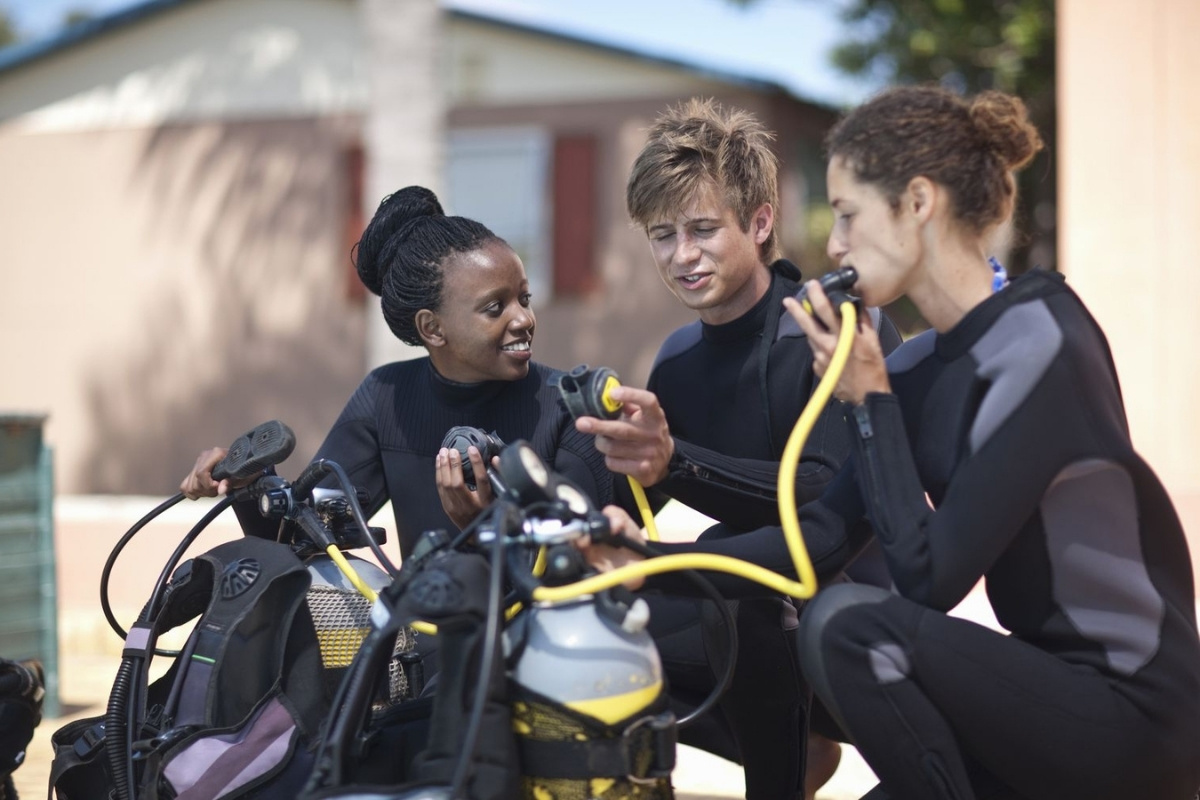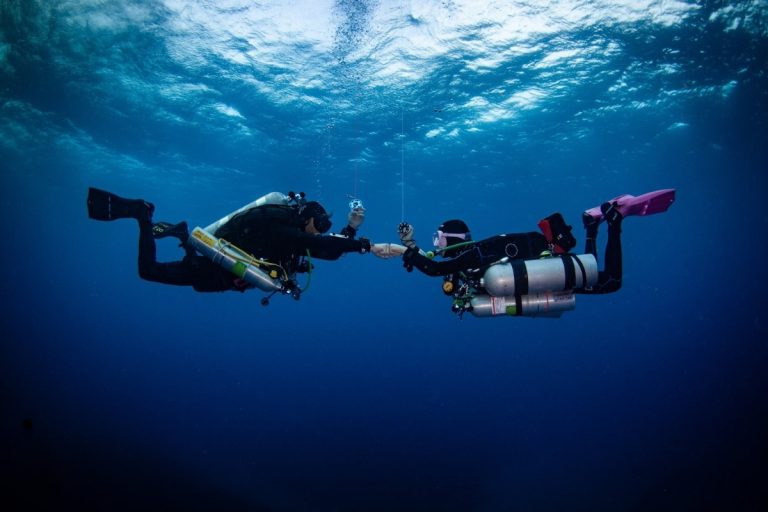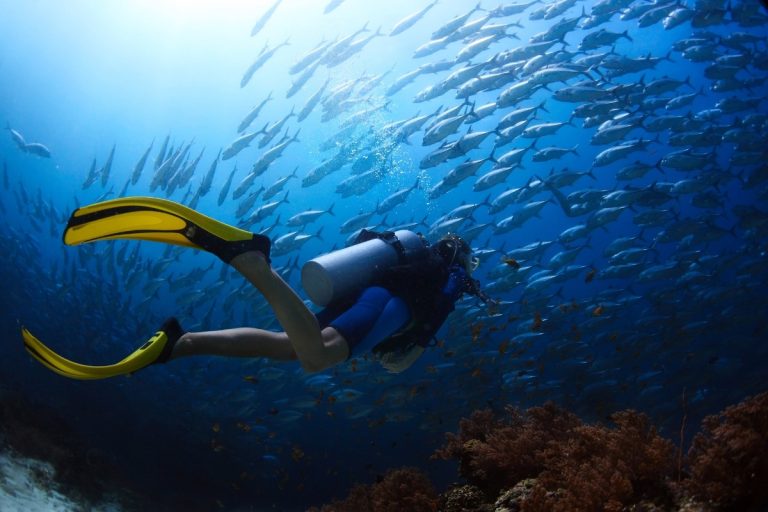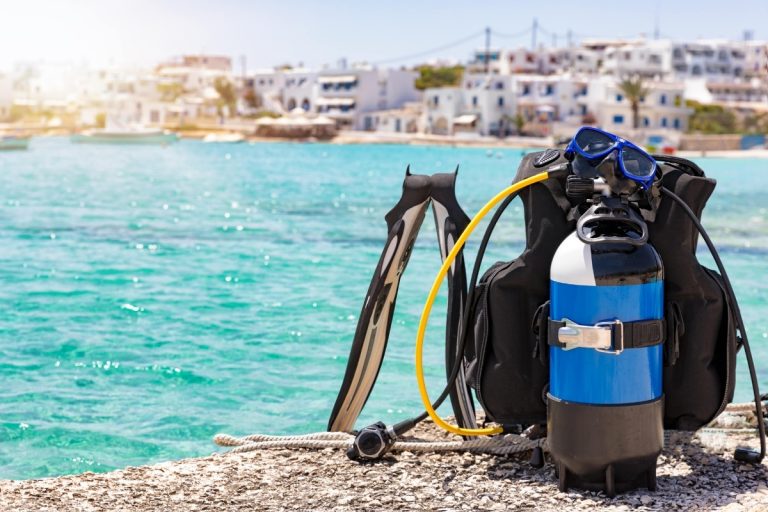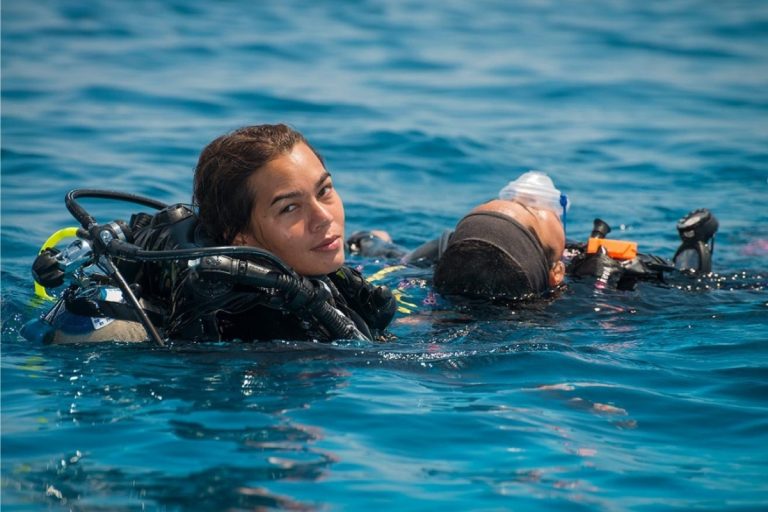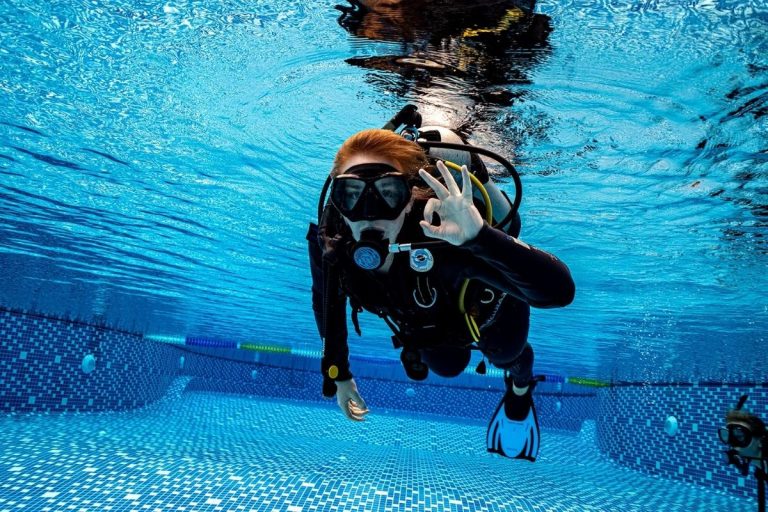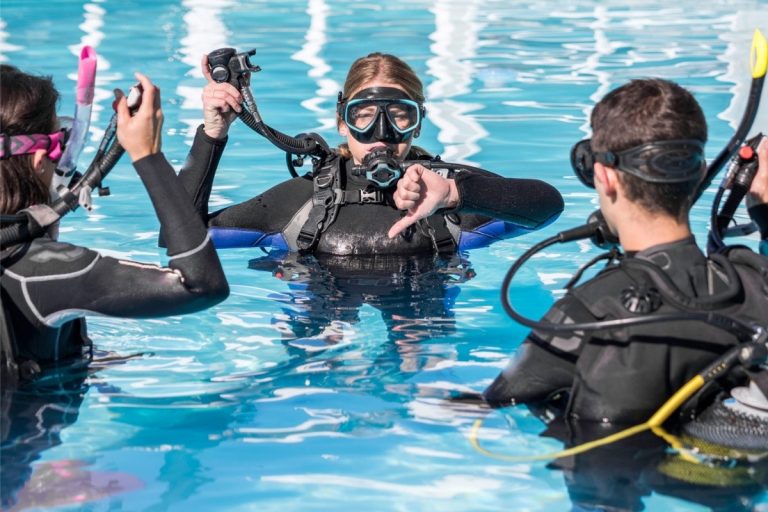- Overview of Scuba Courses and Certifications
- PADI Open Water Diver Course
- Advanced Scuba Courses
- Specialty Scuba Courses
- Continuing Education in Scuba Diving
- PADI Club Membership Benefits
- Scuba Diving Safety and Conservation
- Global Dive Travel Opportunities
- Frequently Asked Questions
- Embark on Your Scuba Adventure
Overview of Scuba Courses and Certifications
The underwater world opens its doors to those who take the time to learn proper diving techniques and safety protocols. Professional scuba certification programs provide the foundation every diver needs to explore marine environments safely and confidently. These structured learning paths transform curious beginners into skilled underwater adventurers while building a global community of ocean enthusiasts.
PADI’s scuba diving courses represent the gold standard in diver education, offering comprehensive training that combines theoretical knowledge with hands-on practical experience. The certification system creates a clear progression path, allowing divers to advance their skills systematically while building confidence in various underwater conditions.
Introduction to Scuba Diving
Scuba diving transforms the way we experience our planet’s aquatic environments. This activity requires specialized equipment, proper training, and a deep respect for marine ecosystems. Modern diving education emphasizes both technical skills and environmental awareness, creating responsible divers who contribute positively to ocean conservation efforts.
The learning process begins with understanding basic physics principles that affect underwater activities, including pressure changes, gas laws, and buoyancy control. Students also learn about marine life behavior, underwater communication methods, and emergency response procedures that ensure safe diving experiences.
Importance of Certifications
Professional certifications serve as your passport to underwater adventures worldwide. Dive operators, resorts, and charter services require valid certifications before allowing access to their facilities or guided diving experiences. These credentials demonstrate that you possess the knowledge and skills necessary to dive safely in various conditions.
Certification programs also provide standardized training that ensures consistent safety practices across the global diving community. This universal recognition allows certified divers to participate in diving activities anywhere in the world, knowing that their training meets internationally accepted standards.
Types of Scuba Certifications
The certification system offers multiple levels designed to match different experience levels and diving interests. Entry-level certifications focus on fundamental skills and safety procedures, while advanced certifications address specialized techniques and challenging environments. Each level builds upon previous knowledge while introducing new concepts and skills.
Specialty certifications allow divers to pursue specific interests such as underwater photography, wreck diving, or technical diving. These focused programs provide in-depth training in particular areas, helping divers develop expertise in their preferred diving activities while maintaining safety standards.
PADI Open Water Diver Course
The Open Water Diver certification serves as the foundation for all future diving adventures. This comprehensive program introduces students to essential diving skills, safety procedures, and theoretical knowledge required for independent diving activities. The course structure balances classroom learning with practical application, ensuring students develop both understanding and competence.
Students learn to use standard diving equipment, plan diving activities, and respond appropriately to various underwater situations. The program emphasizes building confidence through gradual skill development, allowing students to progress at their own pace while meeting established performance standards.
Course Structure
The Open Water Diver program consists of three main components: knowledge development, confined water training, and open water dives. Knowledge development covers diving physics, physiology, equipment use, and safety procedures through interactive learning materials and instructor-led sessions.
Confined water training takes place in controlled environments such as swimming pools or shallow, calm water areas. Students practice essential skills including equipment assembly, underwater breathing techniques, buoyancy control, and emergency procedures. This safe environment allows students to build confidence before progressing to open water training.
Prerequisites and Requirements
PADI Open Water Diver Certification requires students to meet basic age and health requirements. Participants must be at least 10 years old for junior certifications or 12 years old for full certifications. All students complete a medical questionnaire to identify any health conditions that might affect diving safety.
Swimming competency represents another essential requirement, as students must demonstrate basic water skills including treading water and swimming specific distances. These prerequisites ensure that students possess the fundamental abilities necessary to participate safely in diving activities.
What to Expect During the Course
The learning experience combines theoretical study with practical skill development in a supportive environment. Instructors provide personalized attention, helping students overcome challenges and build confidence in their abilities. The program typically requires several days to complete, depending on the chosen learning format and individual progress.
Students experience the excitement of breathing underwater for the first time in controlled conditions before progressing to natural water environments. Each training dive introduces new skills and concepts, gradually building the competence needed for independent diving activities after certification.
Advanced Scuba Courses
Advanced training programs build upon foundational skills while introducing more challenging diving environments and techniques. These courses prepare divers for deeper waters, limited visibility conditions, and specialized diving activities. The advanced curriculum emphasizes problem-solving skills and independent decision-making abilities.
Advanced Adventure Dives offer exposure to various specialty diving areas, allowing students to sample different types of diving before committing to specific specialty certifications. This approach helps divers identify their interests while building diverse skill sets that enhance their overall diving competence.
Overview of Advanced Courses
Advanced Open Water Diver certification requires completion of five adventure dives, including mandatory deep and navigation dives. Students choose three additional adventure dives from available specialty areas, creating a customized learning experience that matches their interests and goals.
The program structure allows flexibility while ensuring students gain exposure to essential advanced skills. Each adventure dive includes specific learning objectives and performance requirements, maintaining training standards while accommodating individual preferences and local diving conditions.
Deep Diving Techniques
Deep diving training addresses the unique challenges and considerations associated with diving beyond recreational depth limits. Students learn about nitrogen narcosis effects, pressure-related equipment behavior, and safety procedures specific to deeper waters. The training emphasizes conservative diving practices and proper planning techniques.
Practical deep diving experience teaches students to recognize and manage the physiological effects of increased pressure. They practice buoyancy control techniques specific to deeper waters and learn to use depth-related safety equipment effectively.
Navigation and Night Diving
Underwater navigation skills enable divers to find their way accurately in various conditions, reducing stress and increasing safety margins. Students learn to use natural navigation techniques, compass navigation, and distance estimation methods. These skills prove essential for independent diving and dive planning activities.
Night diving opens new underwater experiences while requiring specialized techniques and equipment. Training covers proper light usage, buddy communication methods, and navigation techniques specific to limited visibility conditions. Students learn to appreciate the different marine life behaviors and underwater atmosphere that characterize night diving experiences.
Specialty Scuba Courses
Specialty certifications allow divers to pursue specific interests while developing expertise in particular diving areas. These focused programs provide in-depth training that goes beyond general diving skills, addressing the unique requirements and challenges associated with specialized diving activities.
Specialty Courses: Enriched Air (Nitrox), Photography, Tec Diving represent popular options that enhance diving experiences in different ways. Each specialty addresses specific knowledge areas and practical skills, allowing divers to safely participate in activities that match their interests and goals.
Introduction to Specialty Courses
Specialty training programs focus on specific aspects of diving, providing detailed knowledge and practical experience in chosen areas. These courses allow divers to develop expertise while maintaining safety standards appropriate to each specialty area. The variety of available specialties ensures that divers can find training that matches their interests and local diving conditions.
Each specialty course includes theoretical study and practical application components designed to build competence in the chosen area. Students learn specialized techniques, equipment usage, and safety procedures specific to their chosen specialty, preparing them for independent participation in these activities.
Benefits of Specialty Certifications
Specialty certifications expand diving opportunities by qualifying divers for activities that require specific training and knowledge. These credentials demonstrate competence in specialized areas, allowing access to guided activities and equipment rentals that support specialty diving interests.
The focused training also enhances overall diving skills by addressing specific challenges and techniques. Many specialty skills transfer to general diving situations, making certified divers more competent and confident in various underwater conditions.
Popular Specialty Courses Offered
Enriched air (nitrox) certification teaches divers to use oxygen-enriched breathing gases that extend bottom times and reduce surface intervals. This popular specialty enhances recreational diving experiences by allowing longer underwater exploration periods while maintaining safety margins.
Underwater photography training combines diving skills with artistic and technical photography knowledge. Students learn specialized equipment usage, underwater lighting techniques, and marine life photography approaches that create compelling underwater images while respecting marine environments.
Continuing Education in Scuba Diving
Professional development opportunities allow experienced divers to advance their skills while contributing to the diving community. These programs prepare divers for leadership roles, emergency response situations, and professional diving careers. The training emphasizes both technical competence and leadership abilities.
Continuing Education: Rescue Diver & Divemaster programs represent significant milestones in diver development, requiring demonstrated competence in advanced skills and knowledge areas. These certifications prepare divers to assist others and take on responsibility for diving activities and safety.
The Importance of Continuing Education
Ongoing education maintains and enhances diving skills while introducing new techniques and knowledge areas. Regular training helps divers stay current with evolving safety practices, equipment developments, and environmental awareness initiatives. This commitment to learning contributes to safer diving practices and enhanced underwater experiences.
Advanced training also builds confidence and competence that enhances diving enjoyment. Divers with advanced skills feel more comfortable in challenging conditions and can assist others when needed, contributing to overall diving safety and community support.
Rescue Diver Certification
Rescue Diver training focuses on preventing and managing diving emergencies while building confidence in challenging situations. Students learn to recognize potential problems, assist distressed divers, and coordinate emergency responses. The training emphasizes both physical skills and psychological preparedness for emergency situations.
The course includes extensive practical training in rescue techniques, emergency response procedures, and stress management approaches. Students practice realistic emergency scenarios that build competence and confidence in their ability to assist other divers when needed.
Divemaster Training Programs
Divemaster certification represents the first professional level in diving education, preparing candidates to assist instructors and guide certified divers. The comprehensive program covers leadership skills, diving theory, practical skills demonstration, and supervised experience with actual diving activities.
Candidates develop the knowledge and abilities needed to plan diving activities, supervise diving groups, and assist with training programs. The training emphasizes professional standards, safety practices, and environmental awareness that characterize effective dive leadership.
PADI Club Membership Benefits
PADI Club membership provides ongoing value for certified divers through exclusive benefits and resources. Members receive discounts on continuing education, access to specialized materials, and connections to the global diving community. The membership program supports lifelong learning and diving participation.
Club benefits extend beyond individual advantages to support broader diving community initiatives including conservation efforts, research programs, and educational outreach activities. Members contribute to these important programs while receiving tangible benefits that enhance their diving experiences.
Overview of PADI Club
PADI Club membership creates connections between divers worldwide while providing access to exclusive resources and benefits. Members receive regular communications about diving opportunities, conservation initiatives, and educational programs that support ongoing involvement in diving activities.
The club structure facilitates networking among divers with similar interests while providing platforms for sharing experiences and knowledge. This community aspect enhances the social dimensions of diving while supporting individual learning and development goals.
Discounts on Courses and Materials
Members receive significant discounts on eLearning programs, certification courses, and educational materials. These savings make continuing education more accessible while encouraging ongoing skill development and specialty training participation.
The discount structure applies to various products and services including digital learning materials, certification processing fees, and specialty course enrollments. These benefits provide tangible value that supports members’ diving education and development goals.
Access to Exclusive Resources
Club membership provides access to specialized educational content, diving guides, and conservation information not available to general audiences. These resources support informed diving decisions and enhance understanding of marine environments and conservation issues.
Members also receive priority access to new educational programs, special events, and unique diving opportunities. This exclusive access creates additional value while supporting members’ ongoing engagement with diving activities and the broader diving community.
Scuba Diving Safety and Conservation
Safety practices and environmental stewardship represent fundamental aspects of responsible diving. Modern diving education emphasizes both personal safety and environmental protection, creating divers who contribute positively to marine ecosystem preservation while enjoying safe underwater experiences.
The integration of safety and conservation education reflects the interconnected nature of these concerns. Safe diving practices protect both divers and marine environments, while conservation awareness enhances safety by promoting respect for underwater ecosystems and their inhabitants.
Safety Practices for Divers
Comprehensive safety practices begin with proper training and equipment maintenance, extending through dive planning, buddy system implementation, and emergency preparedness. These practices create multiple safety layers that protect divers in various conditions and situations.
Regular skills practice and continuing education maintain safety competence while introducing new techniques and knowledge. This ongoing commitment to safety excellence contributes to positive diving experiences and community safety standards.
PADI’s Conservation Efforts
PADI’s conservation programs address critical marine environmental challenges through education, research, and direct action initiatives. These efforts include marine debris removal, shark and ray protection, and coral reef restoration projects that engage divers in meaningful conservation work.
The PADI AWARE Foundation coordinates conservation activities while providing resources and training that enable divers to contribute effectively to environmental protection efforts. These programs create opportunities for divers to give back to the underwater environments they enjoy exploring.
How to Get Involved in Conservation
Divers can participate in conservation efforts through various programs including citizen science projects, cleanup activities, and advocacy initiatives. These opportunities allow individual divers to contribute to larger conservation goals while building connections with like-minded community members.
Local dive centers and environmental organizations often coordinate conservation activities that provide hands-on involvement opportunities. Participation in these programs enhances diving experiences while contributing to important environmental protection efforts.
Global Dive Travel Opportunities
International diving experiences provide opportunities to explore diverse marine environments while applying diving skills in new conditions. Travel diving requires additional planning and preparation, but rewards divers with unique underwater experiences and cultural exchanges.
Professional dive travel services help divers access remote locations, specialized diving activities, and expert local guidance. These services enhance travel experiences while ensuring safety standards and environmental protection practices.
Types of Dive Travel
Dive travel options range from day trips to extended expeditions, with choices including resort-based diving, liveaboard experiences, and adventure travel programs. Each option provides different advantages and experiences, allowing divers to choose travel styles that match their preferences and goals.
Liveaboard vessels provide access to remote diving locations while offering intensive diving experiences with multiple daily dives. Resort-based diving combines underwater activities with land-based amenities and cultural experiences, creating well-rounded vacation experiences.
Choosing the Right Dive Destination
Destination selection depends on individual interests, experience levels, and seasonal considerations. Popular destinations offer different marine life, underwater topography, and diving conditions that appeal to various diver preferences and skill levels.
Research and planning help ensure that chosen destinations match diver expectations and abilities. Factors including water temperature, visibility, current conditions, and marine life diversity influence destination suitability for different divers and travel goals.
Preparing for a Dive Trip
Travel preparation includes equipment considerations, certification requirements, and health precautions specific to chosen destinations. Proper preparation ensures that divers can participate fully in planned activities while maintaining safety standards and equipment functionality.
Documentation requirements, insurance considerations, and emergency planning represent important preparation aspects that contribute to successful dive travel experiences. Thorough preparation allows divers to focus on enjoying their underwater adventures while maintaining appropriate safety margins.
Frequently Asked Questions
What are the main types of scuba certifications?
The main types of scuba certifications include entry-level certifications, advanced certifications, and specialty certifications. Each type caters to different experience levels and diving interests.
Why is scuba certification important?
Scuba certification is important as it demonstrates that divers possess the necessary knowledge and skills to dive safely in various conditions. It is often required by dive operators and resorts.
What does the PADI Open Water Diver Course include?
The PADI Open Water Diver Course includes knowledge development, confined water training, and open water dives, focusing on essential diving skills and safety procedures.
What are specialty scuba courses?
Specialty scuba courses provide in-depth training in specific areas of diving, such as underwater photography, enriched air diving, and technical diving, allowing divers to develop expertise in their chosen interests.
How can divers get involved in conservation efforts?
Divers can get involved in conservation efforts through programs like citizen science projects, cleanup activities, and advocacy initiatives organized by local dive centers and environmental organizations.
Embark on Your Scuba Adventure
Diving opens up a world of exploration and adventure, enriched by the skills and knowledge gained through professional training. Whether you are a beginner or an experienced diver, pursuing certifications and engaging in conservation efforts can enhance your underwater experiences and contribute to the preservation of marine environments.
